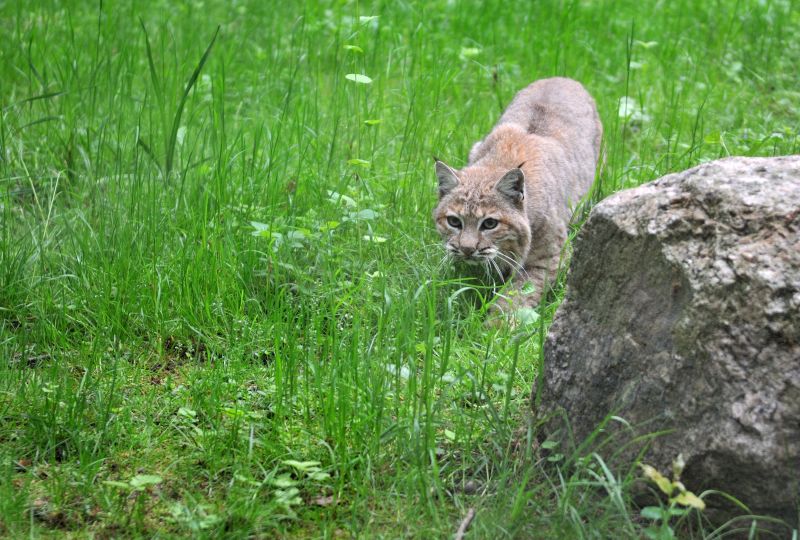
Sheep farmers have called claims by Lynx UK Trust suggesting it has obtained permission from all landowners for the release of lynx as "misleading".
The rewilding campaign group has claimed that "major landowners" responsible for 700km2 of potential Eurasian lynx habitat in the Kielder Forest region in Northumberland have approved access during the planned trial reintroduction.
The Trust says all of the landowners approached have given their go-ahead.
The group says lynx would bring benefits such as helping to control and reduce the UK’s over-populated deer numbers, reducing damage to forests and improving habitat for smaller animals.
However, the Kielder community group and the National Sheep Association (NSA), a fierce critic of the proposals to reintroduce lynx in the British countryside, said they "utterly deplore" Lynx Trust UK's "misinformation".
The sheep organisation attended a community meeting in the Kielder Forest organised by local residents and farmers.
The community in Kielder and surrounding areas came together to form a "united group to refute" Lynx Trust UK's claim.
The meeting had representation from the affected communities, including from residents, community groups, farmers, landowners and other business interests.
In a statement, the the community group said: “We utterly deplore the attempt by Lynx Trust UK to misinform the public through the press.
“In the light of this proven unreliability, we are calling on Natural England to thoroughly test all claims made within the licensing application by the Lynx UK Trust.
“In particular we are challenging the claims made about the public consultation run by the trust in our area and the claimed support.
“We are calling on Natural England to run its own public consultation exercise within the affected communities before any decision is made.”
Welfare of livestock
The community group said farmers in the region care "passionately" for the local environment, and reject any suggestion that objections against lynx reintroduction only concern potential sheep losses.
They said that ecological restoration projects, many on-going in Kielder itself, have "strong local support and are greatly valued" by farmers.
The sheep industry's main concerns surround the welfare of livestock if any predator is released in the wild.
It follows news of a UK farming delegation visiting Norway to hear of the devastating consequences that rewilding has on the local industry.
In 2016, Norwegian authorities paid out compensation on nearly 20,000 sheep lost to predators.
Of the total amount of sheep killed in Norway, wolverine accounted for around 34 per cent of losses with the lynx, bear and wolf accounting for 21 per cent, 15 per cent and 9 per cent respectively.
And according to the National Sheep Associatio, after a five-year trial in the UK there could be a population of over 30 lynx.
The statement continued: “The trial would therefore be for a project that can never be achieved without continuing human intervention. This should call into serious question the launch of such a project in the first place.”
